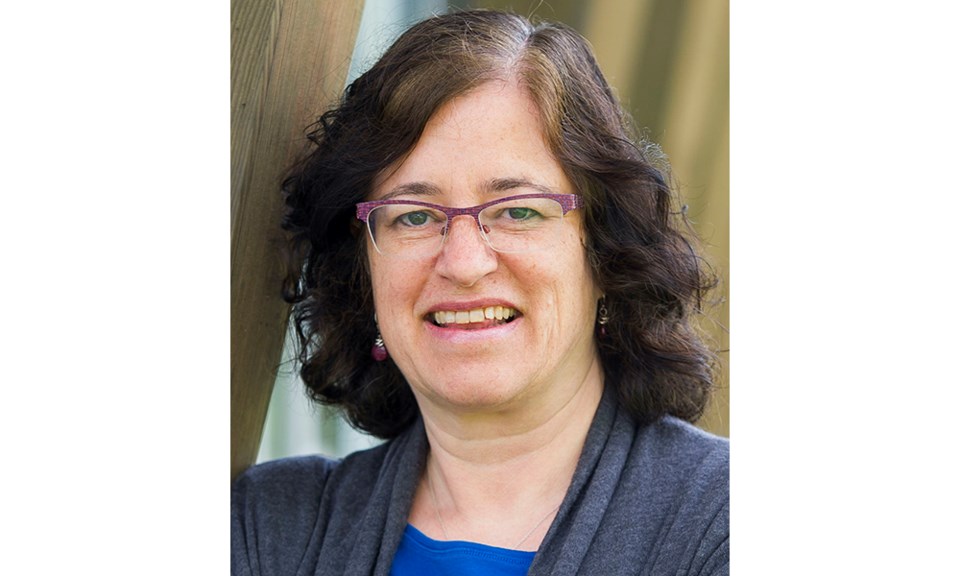Courageous change is needed to save lives being lost in B.C. to toxic drugs, says B.C.’s chief coroner Lisa Lapointe.
In January, 207 people in B.C. died from toxic drugs, the latest statistics show. Compare that to 193 deaths in January in B.C. from COVID-19. A death review panel set up by Lapointe to investigate and make recommendations about the opioid crisis would like to see a similar response to the opioid crisis – coordinated by all levels of government, well-resourced and quick, and addressing health, economic and social aspects of life – as the approach used to address the pandemic.
“COVID-19 has shown that the magnitude of a public health emergency with actions commensurate with the problem is possible,” said panel chairperson Dr. Michael Egilson. “Both levels of government have demonstrated through the COVID-19 emergency health response that it is possible to overcome legislative, jurisdictional and resource barriers quickly in order to prioritize public health and well-being.”
The panel, composed of experts in fields ranging from substance use and addictions to First Nations health to education, poverty reduction and housing, calls for a safer drug supply, a goal-driven provincial strategy and a comprehensive continuum of care including treatment.
Nearly 9,000 British Columbians have died since the public health emergency was declared in 2016 and illicit drug toxicity is the leading cause of unnatural death in province, accounting for more deaths than homicides, suicides, car crashes, drownings and fire-related deaths combined, the panel found. Overall life expectancy in B.C. has dropped because of deaths from toxic drugs.
About 100,000 people in B.C. have an opioid-use disorder, Egilson said. Thousands more lives are at risk, Lapointe said.
“If we are serious about saving lives, then we have to think differently about this,” Lapointe said.
Some of the key findings from the panel include that drug toxicity deaths continue to increase, due to toxic and “unpredictable” drugs, with many substances detected in most deaths, that there is a strong link between drug use and mental health disorders and that many of those who have died have had recent contact with health professionals. Racism and colonial policies continue to mean this crisis disproportionately affects Indigenous people and people who live in poverty or in unstable housing are particularly vulnerable.
The panel is calling for people to be able to access safe drugs through prescriptions, community harm reduction and public-health models. They want to see action by May 9.
“We are not going to be simply prescribing our way out of this crisis,” Egilson said. “That’s probably going to really require thinking about things differently and that may mean needing to enact other emergency powers or look at legislative changes, … (and we will have to) look at this holistically and more broadly.”
Sheila Malcolmson, B.C.’s minister of mental health and addictions, said the drug supply is getting more tainted over time. In early 2020, the concentration of fentanyl in illicit drug deaths was between four and eight per cent. By the end of 2021, that was up to between 24 and 28 per cent, Malcolmson said, calling it “a staggering increase.”
But the province has limited jurisdiction over drugs.
"Since the federal government regulates controlled drugs and substances, we are focused on what we can do within our provincial jurisdiction — a prescribed safer supply model implemented through health authorities,” Malcolmson said. “We are the first and only province to apply to decriminalize people who use drugs. Decriminalization will reduce the fear and shame that keeps people silent and leads so many to hide their drug use and avoid treatment and support.”
This is where Egilson is calling for a cross-jurisdictional response, like the response to COVID-19.
Malcolmson acknowledges that there is more to do.
“We are swimming against a rising tide of need, but we need to keep going and keep working together,” she said. “There's much more to do, and we won't stop working until we turn this crisis around.”
Lapointe and Egilson said it’s up to all of us to make change.
“I think we are probably all responsible. There is an urgency for all of us,” Egilson said.
Lapointe said safe supply is a “burning issue” for families who have lost loved ones.
“At the end of the day, it’s up to the people of the province to ask their elected officials to make the changes that they think are important,” she said.
These preventable deaths have got to stop. Whatever can be done to save lives and help more people recover from addiction, must be done.
Tracy Sherlock is a freelance journalist who writes about education and social issues. Read her blog or email her [email protected]

